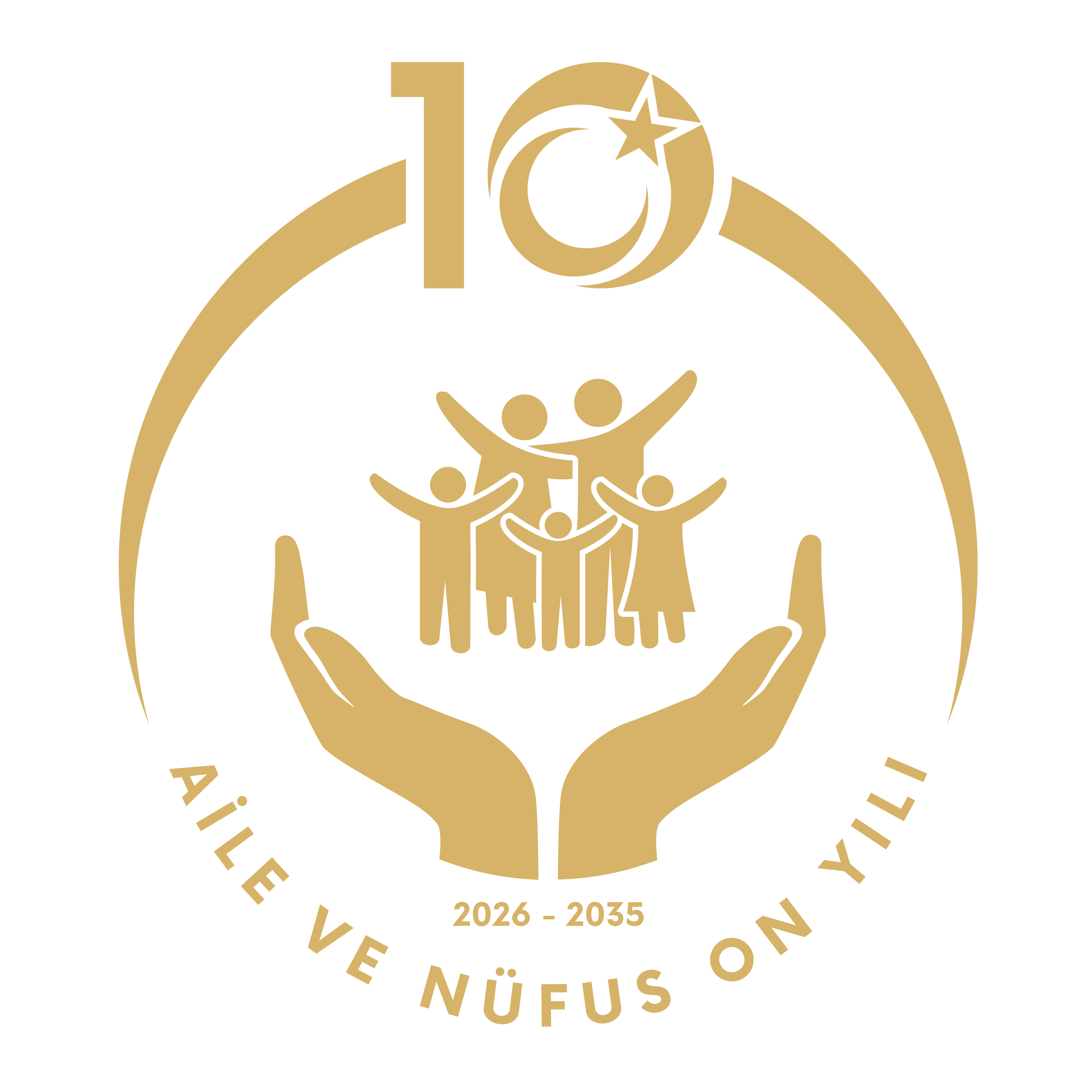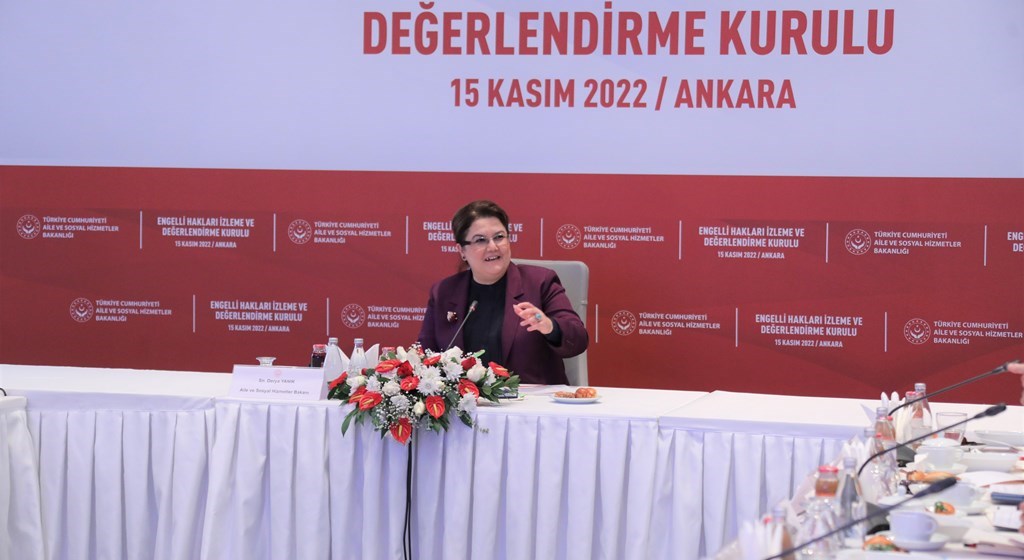The first meeting of the Monitoring and Evaluation Board on the Rights of Persons with Disabilities was held under the chairmanship of our Minister Derya Yanık
Our Minister of Family and Social Services, Derya Yanık, said: “Our Monitoring and Evaluation Board on the Rights of Persons with Disabilities is an important channel to accelerate the effective and impressing studies carried out in recent years in terms of policy making, planning and implementation.”
The first meeting of the Monitoring and Evaluation Board on the Rights of Persons with Disabilities was held at the 75th Year Nursing Home Elderly Care and Rehabilitation Centre under the chairmanship of Minister Derya Yanık, with the participation of representatives of all public institutions and organizations and civil society organizations for persons with disabilities.
In her speech at the meeting, Minister Yanık stated that there are more than 1 billion persons with disabilities around the world and that approximately 6.9 percent of the population in Türkiye is with disabilities and that the board has an important responsibility in the creation and delivery of disability policies and services in the fields of duty and authority of all public institutions and organizations and civil society organizations.
Yanık emphasized that they set the main goal of ensuring the equal, effective and natural participation of persons with disabilities in all areas of social life, and emphasized that the measures taken and diversified services for persons with disabilities to exercise their rights should be considered as active participation in life, not as a privilege or a blessing.
"2030 Barrier-Free Vision" document
Yanık reminded that they have prepared the "2030 Barrier-Free Vision" document, which will be a roadmap in terms of disability in all policies and services of the country until 2030.
Yanık, stated that the Monitoring and Evaluation Board on the Rights of Persons with Disabilities was established with the Presidential Circular published on 3 December 2021 in order to ensure that persons with disabilities participate effectively in social life against all kinds of obstacles, neglect and exclusion, without discrimination. She said: “Our Board is an important channel for accelerating the effective and impressing studies carried out in recent years in terms of policy making, planning and implementation. We can list the duties of our Board in the context of the protection and development of the rights of persons with disabilities as follows: To carry out studies and make suggestions on administrative and legal regulations, to evaluate the works to be done in order to inform the public about the developments, to prepare / have prepared and approve strategy documents and action plans, to ensure inter-institutional cooperation and coordination. Members of the Board, formed within the framework of these duties, have very important responsibilities in terms of our duties. The Convention on the Rights of Persons with Disabilities, of which we are a party, and our 2030 Barrier-Free Vision Document, which is a guide on disability, are the most important basis for the work of our Board. Our Board will be responsible for monitoring the first 3-year National Action Plan on the Rights of Persons with Disabilities and action plan to be announced on December 3, 2022.”
“We increased the number of persons with disabilities working in the public sector by 11 times to 66 thousand”
Emphasizing that as the Ministry, they look at the events with a holistic perspective such as "leaving no one behind", Minister Yanık stated that they are trying their best to ensure that persons with disabilities are represented in every field with an unprecedented effort. Minister Yanık said: “One of the important elements of the participation of persons with disabilities in life is their direct participation in production. Removing the obstacles to their existence in all areas of life also means strengthening the employment network. In 2012, we broke new ground in the field of employment of persons with disabilities in the public sector and implemented the central examination system, E-KPSS. In this way, while the number of persons with disabilities working in the public sector was 5 thousand 777 in 2002, today we have increased this number by 11 times to 66 thousand.”
Explaining that they continue their work in terms of diversity, number and quality for a life without disabilities, Minister Yanık said, "We see with joy and happiness that we have come to the position of a country that can set an example in the world in terms of raising the life standard of persons with disabilities. The dedication and effort of the public institutions and civil society organizations you represent has a great share in this proud achievement. This board was established to carry out these works in coordination with cooperation and common view among all public institutions and organizations. The results to come out of this will lead to very important results both for our Ministries and more importantly for improving the quality of life of persons with disabilities. Our President's sensitivity on this issue and his perspective on persons with disabilities have been very clear from the very beginning. It provides a very important motivation for our work.”












